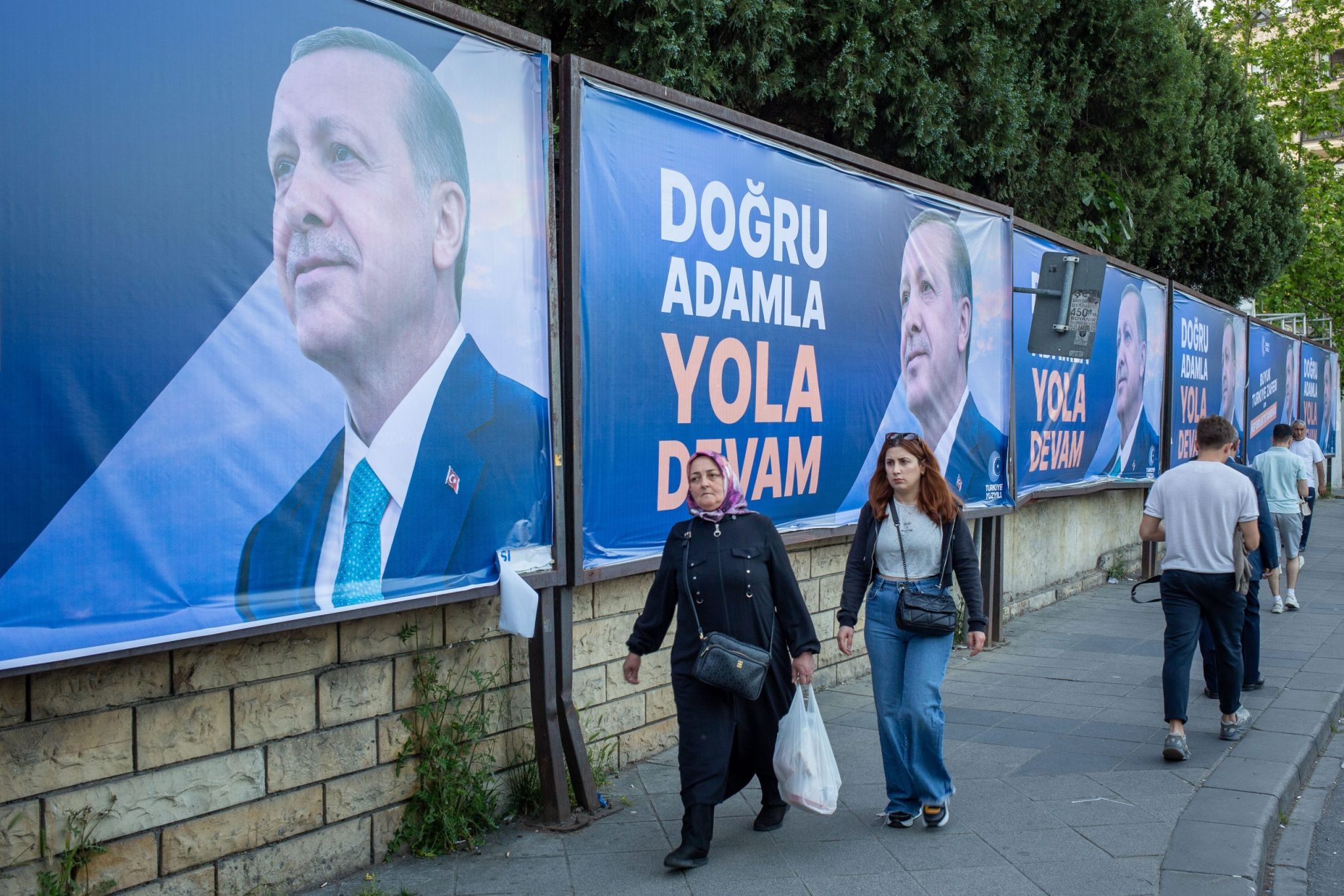How did President Recep Tayyip Erdoğan prevail in the face of a terrible economy, his government’s disastrous handling of the February earthquake, numerous corruption scandals, and a unified opposition?
Turkey’s election was partly free, but deeply unfair. It was only partly free because Erdoğan was able to select the opposition candidate by using his handpicked judiciary to throw some of his most outspoken rivals in prison, while barring others from politics for life. This forced the opposition to put forth Kemal Kılıçdaroğlu, a somewhat bookish and uninspiring retired civil servant, as their candidate. The environment of the election was highly unfair because Erdoğan has spent the past ten years establishing near-complete control over Turkey’s media ecosystem. This allowed the regime to suppress unfavorable narratives about its own corruption and incompetence while amplifying the narrative of fear and distrust—of immigrants, refugees, and LGBT people, to name a few—on which Erdoğan based his reelection campaign.
Ultimately, the combination of Erdoğan’s divisive, nationalistic, fear-driven campaign with his autocratic tactics based on media capture and political prosecutions proved to be potent. Kılıçdaroğlu performed very well in Turkey’s cosmopolitan centers, including Istanbul, Ankara, and the Mediterranean coast, as well as in the Southeast. But this wasn’t enough to overcome Erdoğan’s large margins in the poorer and more religious “Turkish heartland” of central Anatolia and the Black Sea coast.
What does this mean for Turkey?
Given the steps that Erdoğan has taken over his last ten years in power—not to mention his past references to democracy as “like a tram: you ride it until you arrive at your destination, then you step off”—it is likely that future elections will be even less free than this one. Erdoğan will continue to use his pet oligarchs to manipulate elections through graft and media capture and will continue to use the tools of the state to prosecute and marginalize rivals, journalists, and anyone else who stands up to his regime. Turkey scholar and Erdoğan biographer Soner Cagaptay argues convincingly that this election represents a fundamental shift for Turkey from “illiberal democracy” to “Putin-style autocracy”.
On matters of policy, the future is less clear. Erdoğan may continue to pursue the unorthodox expansionist monetary policies that have dried up Turkey’s foreign exchange reserves and sent inflation through the roof. But he could also pivot to a more pragmatic approach as providing cheap credit to favored oligarchs becomes relatively less essential, and wooing foreign capital becomes relatively more so.
When it comes to foreign policy, Erdoğan is likely to continue his balancing act between Russia and the United States. Nationalism will continue to be an essential theme in Erdoğan’s public posture, but he may become more willing to make deals, possibly including dropping his objections to Sweden’s NATO ascension in exchange for F-16s from the United States.
What does this mean for democracy?
Turkey has come to exemplify the modern face of autocracy: a country with institutions so thoroughly captured by its ruling government that actually manipulating the vote count is superfluous. In the past, Turkey’s elections have been described as “free, but not fair,” but this term of art is no longer sufficient to capture the degree of authoritarianism that permeates the Turkish system.
And unfortunately, so far, the community of democracies has no coherent response to this sort of backsliding, elements of which can be seen in other once-vibrant democracies, including Hungary, Israel, and Poland. Biden congratulated Erdoğan on his election win, in part because Turkey is a key NATO ally and regional security partner, and in part because the election manipulation was of the subtle and long-term variety that Washington isn’t able to condemn as easily as ballot stuffing or naked voter intimidation.
But Washington, Brussels, and other centers of the free world will need to develop a new vocabulary for describing this sort of creeping autocracy—and develop new tools for confronting it. The greatest threats to democratic institutions come not only from Russian tanks or Chinese surveillance, but from demagogues within democratic countries who view democracy as a tram to be driven to the darkest alleys of nationalism and xenophobia, and then abandoned.
The views expressed in GMF publications and commentary are the views of the author alone.





